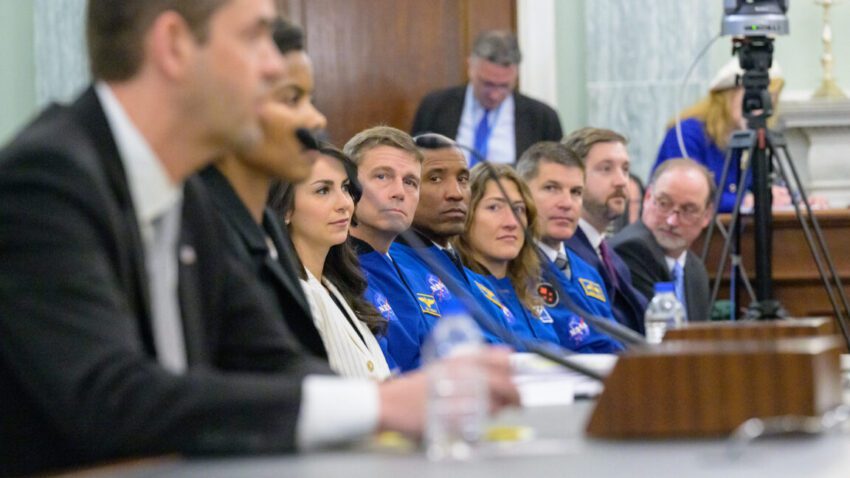
elon musk just declared war on nasa Elon Musk has publicly criticized NASA’s acting administrator, Sean Duffy, igniting a contentious debate about the future of the space agency and its relationship with private contractors.
elon musk just declared war on nasa
Background on NASA’s Leadership Transition
The National Aeronautics and Space Administration (NASA) has been navigating a period of uncertainty regarding its leadership. Following the departure of former Administrator Bill Nelson, who stepped down earlier this year, the agency has been operating under the guidance of interim administrator Sean Duffy. This transition has raised questions about NASA’s strategic direction, particularly as it seeks to maintain its relevance in an increasingly competitive space landscape.
Elon Musk, the founder and CEO of SpaceX, has emerged as a significant player in this landscape. SpaceX has become NASA’s most crucial contractor, particularly with its role in the Artemis program, which aims to return humans to the Moon by the mid-2020s. Given this context, Musk’s comments about Duffy carry substantial weight, not only for NASA but also for the broader space industry.
Musk’s Controversial Remarks
On a recent occasion, Musk referred to Sean Duffy as “Sean Dummy,” a remark that has drawn widespread attention and criticism. He further suggested that Duffy’s leadership could jeopardize NASA’s future, stating, “The person responsible for America’s space program can’t have a 2 digit IQ.” These comments have sparked outrage among some in the space community, who view them as unprofessional and detrimental to the collaborative efforts between NASA and private companies like SpaceX.
The Implications of Musk’s Statements
Musk’s comments raise significant concerns about the relationship between NASA and its contractors. As the agency increasingly relies on private companies for various missions, maintaining a constructive dialogue is essential. Musk’s remarks could potentially undermine this relationship, leading to a lack of trust and collaboration.
Moreover, the implications extend beyond just NASA and SpaceX. The space industry is witnessing a shift toward increased privatization, with numerous companies vying for contracts and partnerships with government agencies. If tensions escalate between key players, it could hinder progress on critical projects, such as Artemis and the Lunar Gateway, which are pivotal for future lunar exploration and beyond.
Reactions from Stakeholders
The backlash against Musk’s comments has been swift. Many industry experts and former NASA officials have voiced their concerns, emphasizing the importance of professionalism in leadership roles. Former NASA Administrator Charles Bolden stated, “It’s crucial for leaders in the space community to foster an environment of respect and collaboration. Remarks like these can have lasting consequences.”
Additionally, some members of Congress have weighed in on the situation. Representative Kendra Horn, who has been an advocate for NASA’s budget and programs, expressed her disappointment in Musk’s comments. “NASA is at a critical juncture, and we need leaders who can work together, not tear each other down,” she said in a statement.
The Broader Context of Space Exploration
The current tensions between Musk and Duffy highlight a broader issue within the space exploration community. As private companies become more involved in space missions, the dynamics between government agencies and contractors are evolving. This shift presents both opportunities and challenges.
On one hand, private companies like SpaceX have demonstrated the ability to innovate rapidly and reduce costs, making space more accessible. On the other hand, the competitive nature of the industry can lead to conflicts and rivalries that may hinder collaboration. The recent exchange between Musk and Duffy exemplifies this tension, raising questions about how best to navigate the evolving landscape of space exploration.
The Future of NASA and SpaceX Collaboration
Looking ahead, the relationship between NASA and SpaceX will be critical for the success of upcoming missions. The Artemis program, which aims to land the first woman and the next man on the Moon, relies heavily on SpaceX’s Starship for lunar landings. Any disruption in this partnership could have significant repercussions for the timeline and objectives of the program.
Moreover, NASA’s plans for Mars exploration, including the Artemis missions as a stepping stone, depend on a collaborative approach with private companies. As the agency seeks to establish a sustainable presence on the Moon and prepare for future missions to Mars, fostering a positive working relationship with contractors like SpaceX will be essential.
Potential Consequences of Continued Hostility
If Musk’s criticisms of Duffy continue, the consequences could be far-reaching. A breakdown in communication could lead to delays in project timelines, increased costs, and a potential loss of public confidence in NASA’s ability to execute its missions. Furthermore, if other contractors perceive a lack of support from NASA, they may hesitate to engage in future partnerships, fearing a similar fate.
Additionally, the public perception of NASA could be affected by these tensions. As a government agency, NASA relies on public support and funding to carry out its missions. If the agency is perceived as being embroiled in internal conflicts, it may struggle to secure the necessary resources for future projects.
Conclusion: Navigating the Future of Space Exploration
The recent exchange between Elon Musk and Sean Duffy serves as a reminder of the complexities involved in the collaboration between government agencies and private contractors. As the space industry continues to evolve, it is crucial for leaders to prioritize professionalism and respect in their interactions. The future of NASA, SpaceX, and the broader space exploration community depends on the ability of these entities to work together effectively.
As the situation unfolds, stakeholders will be watching closely to see how NASA and SpaceX navigate this challenging moment. The outcome could shape the trajectory of space exploration for years to come, influencing not only the missions planned for the Moon and Mars but also the overall landscape of the space industry.
Source: Original report
Was this helpful?
Last Modified: October 22, 2025 at 1:36 am
0 views















